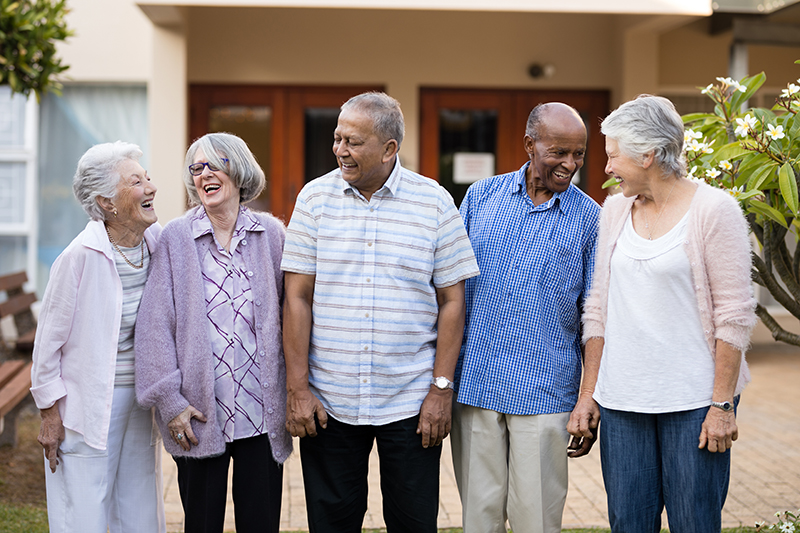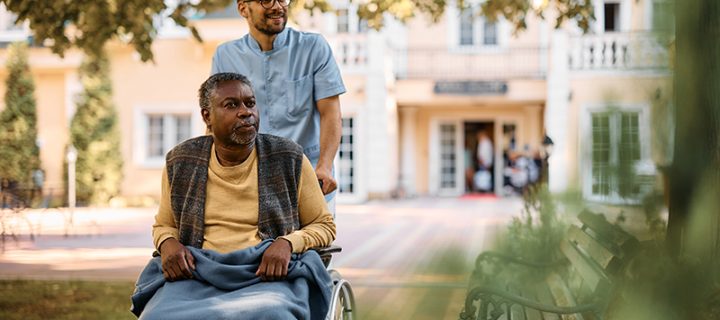Walk into any Australian suburb and you’ll hear it—a patchwork of accents, laughter, stories, and songs. Greek, Italian, Mandarin, Hindi, Arabic, Vietnamese, and so many more. Our country is a living, breathing celebration of difference. So when it comes to culturally responsive care for older persons, why should “one size fits all” even be on the table?
Let’s be real: culture isn’t just something you tick off on a form. It’s the food on your plate, the language that feels like home, the way you greet the morning, the music that brings tears or laughter. For older Australians from culturally and linguistically diverse backgrounds, these details aren’t small—they’re everything.
Listening First: What Makes Care Truly Personal?
Imagine moving into care and suddenly, no one understands your jokes. Your favourite festival passes by unnoticed. The meals taste bland, and the music is just… unfamiliar noise. It’s isolating. It’s lonely. But it doesn’t have to be.
The heart of culturally responsive care? Listening. Not just hearing, but really listening. What matters most to you? What brings comfort, pride, or joy? What foods, rituals, or routines are non-negotiable? This is where good care starts: with curiosity and respect.
Language: More Than Words
You can see it in the sparkle of someone’s eyes when they hear their native tongue after weeks of struggling in English. Language is connection. It’s dignity.
-
Interpreters aren’t a luxury—they’re a lifeline. For big conversations (think health, medication, end-of-life wishes), a professional interpreter is worth their weight in gold.
-
Bilingual staff? Even better. A friendly chat in someone’s first language can turn a stranger into a trusted friend.
-
Visual cues and gestures. Sometimes, a picture really is worth a thousand words. Communication boards, photos, and even a well-timed smile can bridge gaps.
Celebrating Culture—Every Single Day
Culture isn’t a “Harmony Day” poster in the hallway. It’s the everyday stuff. The little things that make life feel right.
-
Food with meaning: There’s magic in a bowl of pho, a plate of dolmades, or a steaming roti. Ask about favourite dishes. Cook together. Share recipes and stories.
-
Festivals and rituals: Light a lantern for Lunar New Year. Share sweets for Diwali. Play classic Italian love songs on a Sunday morning. These moments spark memories and belonging.
-
Dress and grooming: Respect for modesty, headscarves, turbans, or special jewellery goes a long way. It’s about feeling seen, not just served.
-
Prayer and reflection: Quiet spaces for prayer or meditation, and flexibility for religious observances, show deep respect for someone’s inner world.
Inclusive Care Planning: No Decisions About Me, Without Me
Care planning isn’t just paperwork; it’s a conversation. It’s asking, “Who do you want involved?” In some cultures, the whole family weighs in. In others, privacy is prized. There’s no right or wrong—just what feels comfortable.
-
Cultural assessments: Go beyond the basics. Ask about family roles, health beliefs, rituals, and taboos.
-
Flexible routines: Some folks pray at dawn, others nap after lunch, some fast during holy times. Good care flexes, it doesn’t force.
-
Spiritual support: Whether it’s a visit from a faith leader or a quiet corner with a cherished book, honouring spiritual needs is part of holistic care.

Real-World Examples: Where Culture Shines
-
A cup of Greek coffee, thick and sweet, served just right, brings a smile and a story about Athens in the 1950s.
-
A carer learns a few words of Cantonese, and suddenly, a resident’s face lights up every morning.
-
During Ramadan, meal times shift, and a space is set aside for prayer—no fuss, just respect.
-
An Italian grandmother shares her secret pasta recipe, and suddenly the whole kitchen is laughing, flour everywhere.
-
A carer notices a resident’s sari is always perfectly draped and offers to help, learning the technique together.
Why Culturally Responsive Care Matters
When culture is respected, something beautiful happens. Older persons feel safe, valued, and understood. Families relax, knowing their loved one is truly “at home.” Staff learn, grow, and find joy in new traditions. The whole community becomes richer, more colourful, more connected.
The Bottom Line
Culturally responsive care isn’t a checklist—it’s a mindset. It’s about asking, listening, adapting, and celebrating. It’s about seeing the person, not just the patient. After all, in a country as diverse as Australia, care that honours culture isn’t just good practice—it’s the only way forward.
So, next time you share a meal, a song, or a story with someone from a different background, remember: you’re not just caring for a person—you’re honouring a lifetime of culture, memory, and meaning. And that’s something truly worth celebrating.
If you’re looking for compassionate, culturally responsive support to help you or your loved one thrive at home, CCH Home Care is here to help. Our team understands the importance of honouring individual backgrounds, preferences, and traditions while delivering high-quality care. To learn more about our tailored home care services and how we can support your unique journey, contact our friendly team today.

